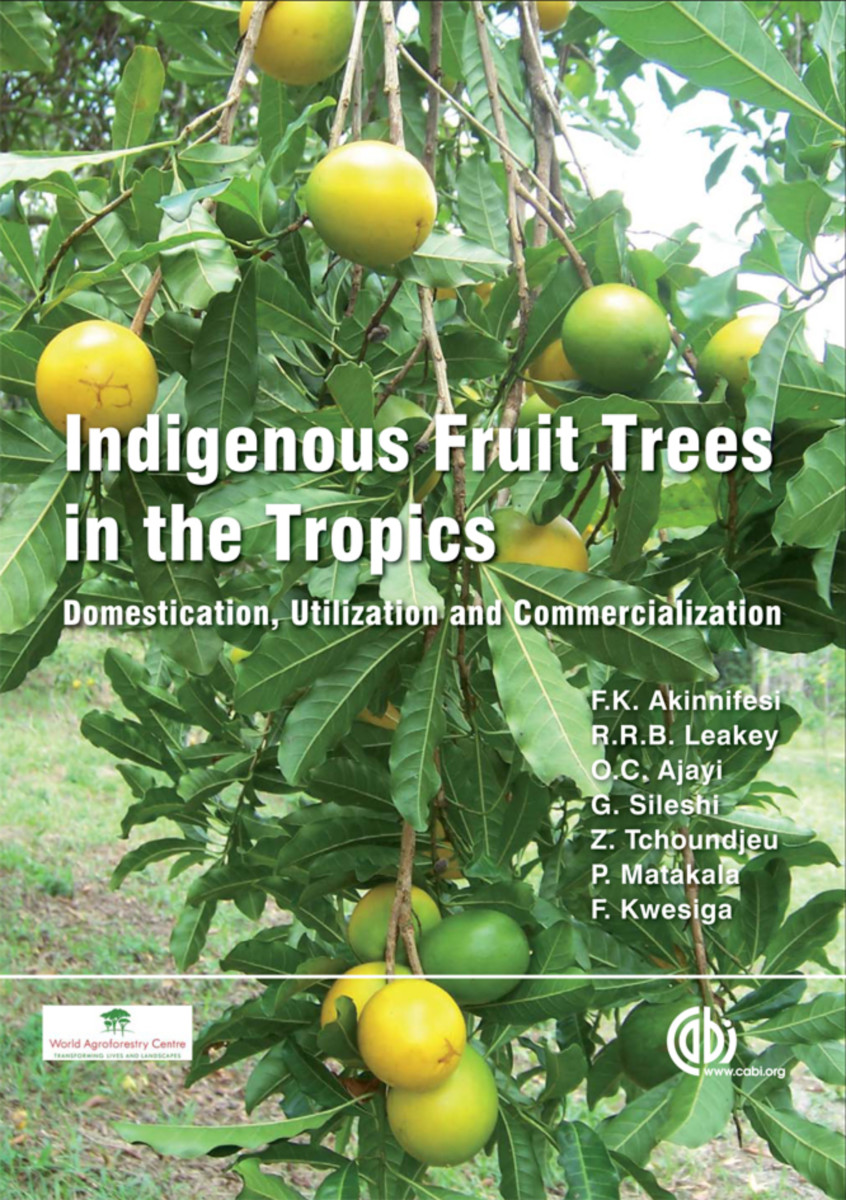Indigenous Fruit Trees in the Tropics
Domestication, Utillization and Commercialization
- Publisher
CABI - Published
10th December 2007 - ISBN 9781845931100
- Language English
- Pages 464 pp.
- Size 6.875" x 9.75"
It has been recognized that an important factor in improving the viability of rural livelihoods in developing countries is the promotion of sustainable agriculture. As opposed to relying solely on cash crops, this can be more easily achieved through the domestication of various indigenous fruit trees that can be cultivated and owned by smallholder farmers. Through multi-functional and integrated farming systems, these tree crops can support environmental and social sustainability by providing food as well as promoting economic growth. Twenty years ago, little was known about the biology, ecology or the social impact of indigenous fruit trees on rural populations. Since then, new concepts and approaches have been developed, case studies have been produced and the potential and feasibility of their domestication and commercialization has been explored. This focused study on the tropics brings together a comprehensive review of this research.
"An excellent book for libraries that maintain collections in either horticulture or tropical agricultural development."
- Choice
PART 1: SETTING THE SCENE
1. Setting priorities among indigenous fruit tree species in Africa: Examples from southern, eastern and western Africa regions, 2. Towards domestication strategy for indigenous fruit trees in the tropics, 3. Challenges to stimulating the adoption and impact of indigenous fruit trees in tropical agriculture
PART II: INDIGENOUS FRUIT TREE DOMESTICATION IN ASIA, LATIN AMERICA and OCEANIA
4. Domestication of trees or of forests: development pathways for fruit tree production in southeast Asia, 5. Homegarden-based indigenous fruit tree production in peninsular India, 6. Native fruit tree improvement in Amazonia: an overview, 7. The domestication of fruits and nut trees species in Vanuatu, Oceania,
PART III: REGIONAL DOMESTICATION RESEARCH AND DEVELOPMENT IN AFRICA
8. Creating opportunities for domesticating and commercializing miombo indigenous fruit trees in Southern Africa, 9. Domestication, utilisation and marketing of indigenous fruit trees: Experiences from West and Central Africa, 10. Strengthening rural livelihoods through domestication of indigenous fruit trees in the parklands of the Sahel, 11. The role of indigenous fruit trees in sustainable dryland agriculture in Eastern Africa,
PART IV: THE BIOPHYSICAL AND SOCIOECONOMIC CONTEXT OF MIOMBO FRUIT TREES
12. Marketing of indigenous fruits in southern Africa, 13. Economics of on-farm production of indigenous fruits, 14. Opportunities for commercialization and enterprise development of indigenous fruits in southern Africa, 15. The feasibility of small-scale indigenous fruit processing enterprises in Southern Africa, 16. Product development: nutritional value, processing and utilization of indigenous fruits from the miombo ecosystem, 19. Germplasm, propagation and nursery management of miombo fruit trees, 20. Pest management in high commercial value indigenous fruit trees
PART V: LESSONS FOR COMODITIZING INDIGENOUS FRUIT TREES AND NUTS IN THE TROPICS
21. Accelerated domestication and commercialization of indigenous fruit and nut trees to enhance better livelihoods in the tropics: Lessons and way forward
Festus K Akinnifesi
No information
Roger Leakey
Roger Leakey D.Sc., Ph.D., B.Sc., FRGS., FIBiol., NDA was born and brought up in Kenya and is an agricultural botanist by training, with over 400 publications. He was a former Director of Research at the International Centre for Research in Agroforestry (1993-1997); Head of Tropical Ecology at the Centre for Ecology and Hydrology in Edinburgh, UK (1997-2001) and Professor of Agroecology and Sustainable Development of James Cook University, in Cairns, Australia (2001-2006). In 2006-2008 he was a Coordinating Lead Author in the International Assessment of Agricultural Science and Technology for Development. He is Vice President of the International Tree Foundation.
Oluyede C Ajayi
No information
Gudeta Sileshi
No information
Zac Tchoundjeu
No information
P Matacala
No information
F R Kwesiga
No information


